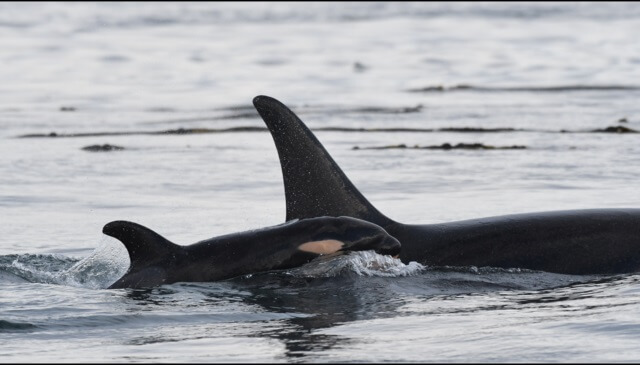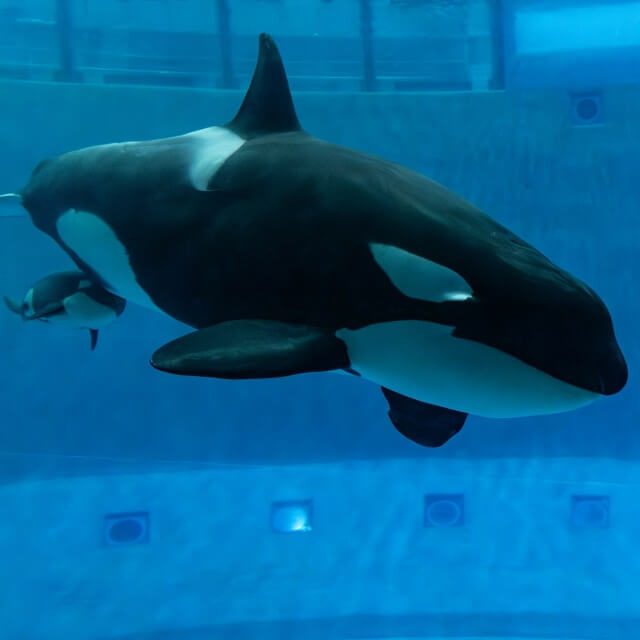It is just three weeks since we posted a story about the contrasting lives and circumstances of two newborn orca calves. One was born to Naya, an orca confined to a tank at the Moskvarium in Russia; the other (J-60) was born in the wild to a mother who, according to the Center for Whale Research, is most likely to be J-42 or J-46. The J pod is an extended family group of 25 whales who live and travel together off the coast of Washington State as part of a yet larger community known as the Southern Resident Orcas.
Three days ago, we heard that Naya’s calf had died at the Moskvarium, and now it is being reported that J-60, too, has passed away. It is a truly sad moment. And as our thoughts go out to the two mothers as they mourn the loss of their calves, it is worth reflecting, too, on the striking contrast between grief in the wild and grief in captivity – and on how the difference between a natural free-ranging life and one spent in captivity once again becomes apparent.

Newborn J-60 with his mother. Photo above and in the post title by Center for Whale Research.
In the ocean, J-46 will be receiving the support and assistance of a close-knit family group to help her through this difficult time. I am reminded of another mother, Tahlequah (J-35), who gave birth to a daughter named Tali in July 2018. Shortly after she was born, Tali passed away, and for the next two weeks, the world watched, transfixed, as Tahlequah, in what could only be interpreted as a display of profound grief and loss, carried the lifeless body of her daughter along the shoreline of Puget Sound on her rostrum. Her family followed along, and when, from time to time, the body slipped away from her, she or other family members would dive below the surface to retrieve it.

Photo of Naya and her calf by Moskvarium.
At the Moskvarium, by contrast, Naya is left to cope with her calf’s death all alone. There are no other orcas in the tank with her, no one to ease her pain, and nothing to relieve the stark suffering of the loss that has befallen her.
At no time is the cruel difference between solitary captivity and a natural life more salient than when tragedy strikes and the need for comfort is at its peak.
It is a fact of life that, whether in captivity or in the ocean, infant mortality among whales is high. And yes, it is appropriate to ask why it is just as high in captivity – an ostensibly “safe” environment – as it is in the wild. But right now, in the immediate aftermath of these two losses, we should perhaps simply pause to reflect on how we would feel if, as a grieving parent, we found ourselves either all alone in a barren concrete tank or, instead, had the succor of a large family to help us cope with life’s inevitable hardships.